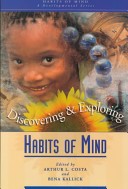Flexible Thinkers
Flexible thinkers are able to shift through multiple perceptual positions at will. One perceptual orientation is what Jean Piaget called egocentrism, or perceiving from our own point of view. By contrast, allocentrism is the position in which we perceive through another person's orientation. We operate from this second position when we empathize with another's feelings, predict how others are thinking, and anticipate potential misunderstandings.
Another perceptual position is macrocentric. It is similar to looking down from a balcony to observe ourselves and our interactions with others. This bird's-eye view is useful for discerning themes and patterns from assortments of information. It is intuitive, holistic, and conceptual. Because we often need to solve problems with incomplete information, we need the capacity to perceive general patterns and jump across gaps of incomplete knowledge.
Yet another perceptual orientation is microcentric, examining the individual and sometimes minute parts that make up the whole. This worm's-eye view involves logical, analytical computation, searching for causality in methodical steps. It requires attention to detail, precision, and orderly progressions.
Flexible thinkers display confidence in their intuition. They tolerate confusion and ambiguity up to a point, and they are willing to let go of a problem, trusting their subconscious to continue creative and productive work on it. Flexibility is the cradle of humor, creativity, and repertoire. Although many perceptual positions are possible—past, present, future, egocentric, allocentric, macrocentric, microcentric, visual, auditory, kinesthetic—the flexible mind knows when to shift between and among these positions.
Notes:
Folksonomies: cognition
Taxonomies:
/hobbies and interests/magic and illusion (0.611556)
/science/medicine/psychology and psychiatry (0.384252)
/health and fitness/alternative medicine/holistic healing (0.378619)
Keywords:
flexible thinkers (0.995778 (positive:0.812390)), multiple perceptual positions (0.806668 (positive:0.772401)), perceptual orientation (0.791885 (negative:-0.491487)), Jean Piaget (0.527293 (negative:-0.491487)), potential misunderstandings (0.520593 (negative:-0.601609)), orderly progressions (0.507207 (positive:0.558897)), incomplete knowledge (0.502250 (negative:-0.532328)), methodical steps (0.501282 (positive:0.249858)), flexible mind (0.497214 (positive:0.398826)), incomplete information (0.493976 (negative:-0.508850)), analytical computation (0.486608 (positive:0.216568)), productive work (0.482864 (positive:0.720280)), general patterns (0.481901 (negative:-0.532328)), view (0.423388 (positive:0.221708)), point (0.376779 (negative:-0.415610)), assortments (0.352777 (positive:0.642691)), balcony (0.352530 (positive:0.534464)), causality (0.348672 (positive:0.249858)), contrast (0.345773 (neutral:0.000000)), ambiguity (0.345767 (negative:-0.406980)), feelings (0.343494 (neutral:0.000000)), gaps (0.342728 (negative:-0.532328)), intuition (0.341283 (positive:0.897787)), cradle (0.341005 (positive:0.633265)), auditory (0.340778 (neutral:0.000000)), Flexibility (0.340190 (positive:0.633265)), confusion (0.340097 (negative:-0.406980)), egocentrism (0.339801 (negative:-0.491487)), allocentrism (0.339776 (neutral:0.000000)), interactions (0.339386 (positive:0.534464))
Entities:
Jean Piaget:Person (0.918475 (negative:-0.491487)), egocentrism:Company (0.686811 (negative:-0.491487))
Concepts:
Cognition (0.985025): dbpedia | freebase | opencyc
Mind (0.899025): dbpedia | freebase | opencyc
Psychology (0.804549): dbpedia | freebase | opencyc
Jean Piaget (0.745523): dbpedia | freebase | opencyc | yago
Perception (0.736562): dbpedia | freebase | opencyc
Egocentrism (0.673976): dbpedia | freebase
Problem solving (0.665693): dbpedia | freebase
Concepts in metaphysics (0.616933): dbpedia





